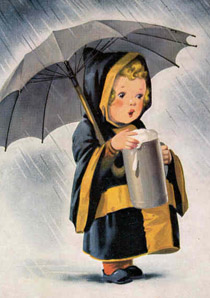 I was going to write about brewers as rock stars today but will save that for Monday (something to think about over the weekend, Alan) because there are so many business related stories worth considering.
I was going to write about brewers as rock stars today but will save that for Monday (something to think about over the weekend, Alan) because there are so many business related stories worth considering.
Start by wandering over to the Zythophile and check out a couple of posts about words for beer (here’s the second).
It seems to me we need to give reporters who write about the business of beer some other words to use. When said reporters throw a net over Budweiser, Sierra Nevada Pale Ale, Corona, Duvel and the pint you should be drinking tonight at your local brewpub and call them all beer they miss important cultural shifts.
The decision isn’t a matter of thinking “should I drink an import or a non-import?” As Stephen Beaumont pointed out it is boire moins, boire mieux (drink less, drink better).
And, “They don’t see wine as elitist or unattainable but believe it denotes maturity and sophistication not given by beer or spirits.”
So are they “trading up” from Coors Light to Yellow Tail? Or from Samuel Adams Utopias? That’s just not clear.
This is not a “craft beer don’t get no respect” rant. Instead I’m bothered that these business stories leave important questions unanswered. It starts with the vocabulary.
Of course you have to sign up as a fan to see the commercials.
Keith Levy, Anheuser-Busch’s vice president for marketing, says the company’s initial decision to not run the horse ad was not a publicity stunt.
But don’t you wonder?
Good point and makes you think about how most people, journalists included, perceive beer and wine.
For most, “beer” means just a brand, “wine” is seen more as a drink, and therefore, more sophisticated. However, and though I don’t have figures to back it up, I bet much of the increase in wine sales is thanks to the cheaper end of the spectrum, and I mean the very cheap, which are wines that are pretty much ignored by the specialised media, as if they were something else.
I now prefer to analogize self-styled celebrity brewers to excellent deli counter managers rather than rock stars. Or is it top notch forensic accountants? P’raps you can touch on these alternatives Monday, too.
I share your wish that craft beer was more a part of the dialog. But I am not sure that it is a realistic expectation.
For the majority of reporters in traditional media outlets it may not make much sense, in the limited real estate they are given, to care about the distinctions between macro- and microbreweries. Those of us that love craft beer have an agenda, but our agenda represents a very small percentage of the overall beer sales in this country.
If craft beer represented 20-30% of beer sales, then it might make a difference, and it should be covered. But given that in 2008 it was 6% of dollars and 4% of volume, and a big chunk of that is Sam Adams…. I am not sure that it shows a lack of balance to not go to more depth on the statistics.
I sometimes wonder if our focus on craft beer, and the number of people we follow on blogs or on Twitter that share our focus, cloud us to the fact that for the most part, we really are a very small community.
When Ale and Beer were legally different things “malt liquor” was the general term encompassing both.
The idea that so-called Millennials are trading beer and spirits for wine is highly questionable, Stan. I just returned from the Cheers Beverage Conference last week and every single bit of data I saw there indicated that Millennials don’t give a toss about wine. In fact, a seminar on how to attract Millennials as customers suggested that imported and domestic craft beer and quality cocktails were increasingly the way to go.